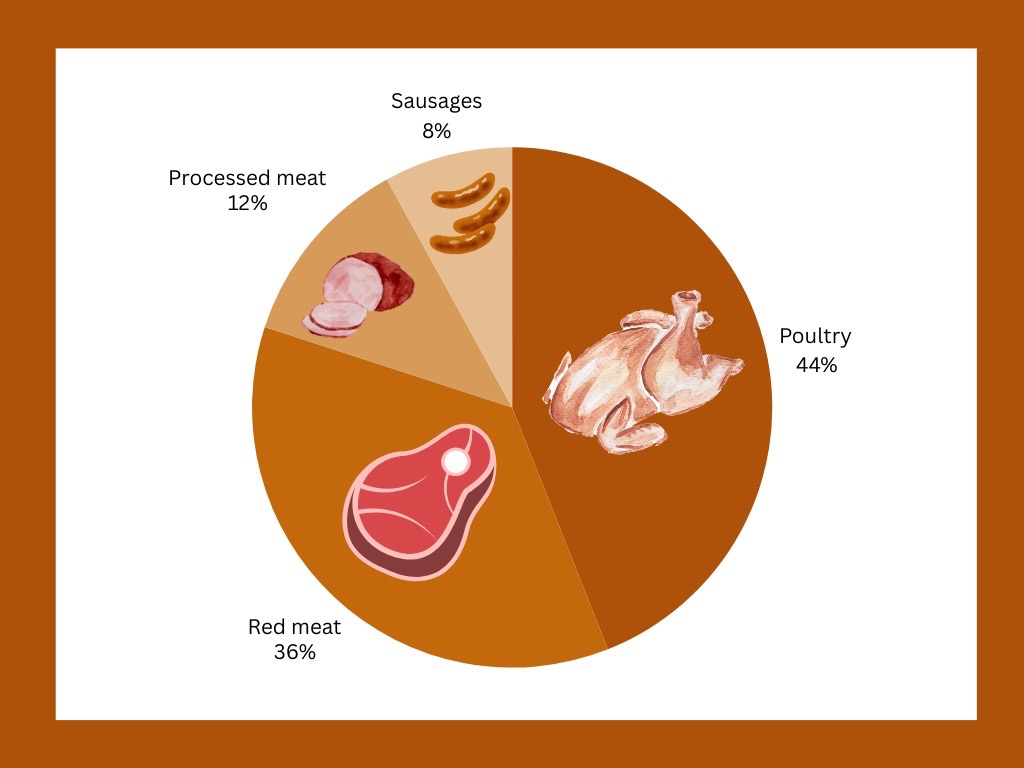Fitness and nutrition influencers are taking over social media feeds promoting high-protein diets, and new data shows Australians may be embracing the protein-rich lifestyle.
Gen Z Tik Tok and Instagram feeds are now inundated with content spruiking protein-related fads and recipes, some of which have become viral sensations.
Red meat and poultry are among the highest sources of protein and recent figures from the Australian Bureau of Statistics show Australians are eating more of it.
Poultry consumption per person rose by 13 per cent between 2018 and 2024.
Beef, lamb and pork consumption increased by 1.8 per cent over the same six-year period.
High protein is essential for bone health and human growth, but some experts suggest people may be eating too much of it, while neglecting other food groups.
Murdoch University food science and nutrition professor Vicky Solah emphasised the need for a balanced diet.
“I think that overconsumption [of protein] is probably happening – you only need 50-60 grams of protein a day so if you have a piece of fish or a steak or an egg or you’re drinking milk, you’re getting enough, you don’t need the protein supplements or the protein bars,” Ms Solah said.
“If you aren’t eating a wide variety of food and your carbs are low with high protein then it’s a health issue.”

Dietitians Australia recommend women should have 0.75 grams of protein per kilogram of body weight, while men should have 0.84 grams.
The average 225g steak contains 56 grams of protein which is two-thirds of a women’s daily needs.
Similarly, chicken contains 54 grams of protein per 200 grams.
The Australian Chicken Meat Federation claims the average Australian now eats nearly 50 kilograms of chicken per year, or one kilogram per week.
Protein-fuelled meals are part of a growing obsession with weight loss and muscle growth.
Ms Solah’s first year nutrition students said they think the social media fads have “heavily” shaped others food habits.
“I reckon body image is a big thing – everyone is so keen to be fit and bulky and muscly and eat right and lift all this weight but it’s not ideal for everyone,” one student said.
“A lot of people that probably would buy the protein are very outwardly motivated to present their image in a certain way.”
As a self-professed cohort of non-gym junkies, Ms Solah’s students collectively agreed the social media trends were “silly”, “ridiculous” and “unrelatable”.
“Usually it’s some big, bulky male promoting some sort of protein product and exercise regime,” a student said.
One popularised food trend is the carnivore diet, which calls for the consumption of solely animal-related products.
Ms Solah warned against it.
“The carnivore diet is absolutely not what we would recommend people to have.”
“You’re getting a whole lot of other things when you’re eating a lot of meat that you don’t need… you’re overloading your organs with protein and they’ve got to be able to process it, so that’s a bad thing,” she said.
“It’s really important for people to have carbs especially for their brain health – they will notice how tired and silly they can get without carbs.” While too much protein may cause health issues, Ms Solah said it isn’t a big deal in most cases because often the excess will just be flushed out of a person’s system.




